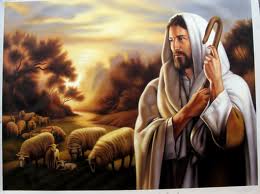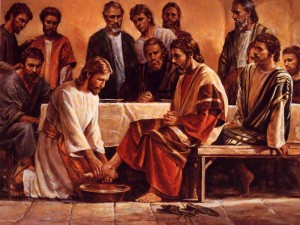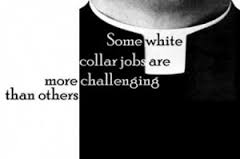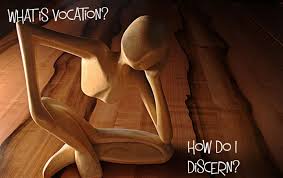
– 30 -4-2023-
Gospel text : John 10:1-10
vs.1 Jesus said, “I tell you most solemnly, anyone who does not enter the sheepfold through the gate, but gets in some other way is a thief and a brigand.
vs.2 The one who enters through the gate is the shepherd of the flock;
 vs.3 the gatekeeper lets him in, the sheep hear his voice, one by one he calls his own sheep and leads them out.
vs.3 the gatekeeper lets him in, the sheep hear his voice, one by one he calls his own sheep and leads them out.
vs.4 When he has brought out his flock, he goes ahead of them, and the sheep follow because they know his voice.
vs.5 They never follow a stranger but run away from him: they do not recognise the voice of strangers.”
vs.6 Jesus told them this parable but they failed to understand what he meant by telling it to them.
vs.7 So Jesus spoke to them again:
“I tell you most solemnly, I am the gate of the sheepfold.
vs.8 All others who have come are thieves and brigands; but the sheep took no notice of them.
vs.9 I am the gate. Anyone who enters through me will be safe: he will go freely in and out and be sure of finding pasture.
vs.10 The thief comes only to steal and kill and destroy. I have come so that they may have life and have it to the full.”
**********************************
We have four sets of homily notes to choose from.
Please scroll down the page for the ones desired.
Michel DeVerteuil : A T&T priest, specialist, in Lectio Divina
Thomas O’Loughlin: Professor of Hist.Theol, University of Notingham
John Littleton: Director of the Priory Institute,, Tallaght D.24
Donal Neary SJ: Editor of The Sacred Heart Messenger
*******************************************************
Michel de Verteuil
Lectio Divina with the Sunday Gospels – Year A
www.columba.ie
General Comments
According to the liturgical tradition, the gospel reading on the fourth Sunday of Easter speaks about Jesus as Shepherd, which is the theme of chapter 10 of St John’s gospel. This theme is dealt with in several sections or “movements”, as is often the case in this gospel. One movement is read on this Sunday each year of the three year cycle; this year we read the first movement.
 ‘Shepherd ‘is one of the biblical titles for a leader, a memory of the days when the Jews were sheep rearing nomads. The passage therefore invites us to celebrate people who have “shepherded” us by touching our lives, some through direct contact, others from reading about them or hearing their stories.
‘Shepherd ‘is one of the biblical titles for a leader, a memory of the days when the Jews were sheep rearing nomads. The passage therefore invites us to celebrate people who have “shepherded” us by touching our lives, some through direct contact, others from reading about them or hearing their stories.
We remember great world leaders, in modern times or in the past, and recognise that they were the presence of Jesus in the world, “shepherding” the human family. The passage can also be an examination of conscience on how we are fulfilling our vocation as parent, teacher, guide, friend, or leader in the church community.
(Actually, the shepherd theme (or “parable”, as it is called in verse 6) is only in verses 1 to 5. In verses 7 to 10 Jesus speaks of himself as “the gate“.
The special characteristic of ‘good shepherds‘ is brought out in the passage in the relationship of trust between them and the sheep. They are trusting and in turn they inspire trust in those whom they lead. This wonderful quality – so rare in our experience – is expressed in a series of images, each of which can touch us deeply.
The shepherds “enter the sheepfold through the gate“, they are not devious; they “call the sheep by name” – no haranguing; they “go ahead of the sheep” – no looking back to see if they are being followed. The sheep “know the voice” of the shepherd; their relationship is almost instinctive, of the heart.
The image of the ‘gate’ is not as well known as that of the shepherd and is more difficult to enter into, but if we make the effort it can be very touching. Leaders who are like a gate are the opposite of possessive; they are content to be the humble instruments through which others can “go freely in and out”, making their own way to live “life to the full”. A wonderful picture indeed of great parents, teachers, community leaders and friends.
Prayer Reflection
 Lord, we remember with gratitude the great people we have known, in the world and in our country: teachers, fellow workers, community leaders, parents, grandparents, uncles or aunts, elder brothers or sisters.
Lord, we remember with gratitude the great people we have known, in the world and in our country: teachers, fellow workers, community leaders, parents, grandparents, uncles or aunts, elder brothers or sisters.
We remember how they came to us openly, without pretence, passing through the open gate.
We knew immediately it was someone who understood us, a voice we had always longed to hear.
We felt we were being called one by one, each by name. They said what they had to say and went ahead, not looking back suspiciously to make sure we were following, and we did follow because we knew we were not with a stranger.
Lord, we ask you to bless leaders in our country and in the world.
Give them today the grace to look into their hearts and ask themselves are they real shepherds of the flock.
Have they come openly through the gate like shepherds, or deviously like thieves? Have they come to give life or to steal, kill and destroy?
Do they speak a foreign language that the sheep cannot recognise so that they naturally run away from them?
Do they take the trouble to know their sheep so that they can call them out one by one, by their own names?
Is their relationship with people one of trust, freeing them to go ahead of the flock, or must they always be looking back, wondering if they are being followed?
Lord, we ask you today to send us many good priests, religious and lay leaders, men and women who will be like a gate to a sheepfold, without the slightest trace of possessiveness, happy to be a passageway through which many will pass freely and live life to the full.
Lord,
We pray for the Church as it emerges among the ancient cultures of Asia, Africa and Latin America, as it exists side by side with other faiths.
We pray that we may not be envious of things that others have and we don’t,
that we may never be destructive or the cause of people or institutions dying,
but rather that we may be true shepherds whose only concern is that people may have life to the full.
Lord,
We pray for our Church which is experiencing a bad patch in our history, one of pain, scandal and betrayal of trust by some of our leaders and members.
Help us to relearn to trust in emerging good leaders who are of trying to guide us as Jesus did. Help us to walk as humbly as Jesus at the last supper.
**************************************************
Thomas O’Loughlin
Liturgical Resources for Lent and Easter
www.columba.ie
Introduction to the Celebration
Who do we follow? This is the question that today’s gospel puts before us. Many of us would like to think that we follow no one, that we make our own decisions and choose our own paths.
Yet, our experience tells us that we are often led — look at advertising— and often led astray: look at how many brigands have incited human beings so that the worst of crimes and destruction have been justified?
But the choice of Christ as our shepherd is the choice to bear witness to the victory of life, and love, and forgiveness over the forces of death, domination, and vengeance. So where do we stand in terms of calling ourselves his believers, disciples, friends, followers, students or what?
Homily Notes
1. In many places this is ‘Recruitment Sunday‘: ‘we need priests because without priests there will be no Mass – so if there are some generous, unmarried men in the congregation, why not join up now!’ However, whether or not such appeals have any effect, it is best to avoid the whole topic as it abuses the liturgy by turning the moment in the assembly’s week when its president is charged with helping his brothers and sisters reflect on the mystery of Christ into an advertising slot. Preaching is a sacred task and no other end, however noble, can justify replacing the Sunday homily with a piece of promotional work.
2. Since the gospel text is opaque, and the use of allegory as its key usually results in something that is little more than a free association of ideas, it is worth inviting people to explore the dynamic underlying Luke’s ‘sermon’ in Acts, for this brings us face-to-face with what the evangelist saw as the kernel of the Christian vocation. So instead of a formal discourse, invite the assembly to work through the text meditatively, noting its main features.
3. The text can be conceived as trinitarian in structure. It supposes that the kerygma’s audience, both the audience described in the text and the text’s audience, begin from a position of belief in God who has brought them into existence, sent them his revelation, and exercises a providential care for them. This is the starting point of faith in God, who once the Son has been recognised will be acknowledged as Father; and with it goes a recognition of human need and incompleteness. This notion of providential care and the human predicament of sin is clearer when the whole text of Acts 2:14-41 is read – which could be summarised in a few words.
The Father has sent us, his children, his Son. Then we are given a list, of sorts, which set out what we receive through Jesus and his victory over death – we should note that Luke locates his sermon in the context of Easter, the Paschal mystery, and its proclamation:

– Jesus’s life, death and resurrection reveal the life of God;
– through Jesus we are remade as a community: the People of God;
– Jesus calls us to share in his Paschal Mystery and to enter his communion in baptism; and
– Jesus draws us to repentance, a new vision, a new lifestyle. We as baptised people have received the gift of the Spirit.
We are those ‘whom the Lord our God will call to himself’.
4. Such a recollection of the structure of the Paschal Mystery is appropriate to Eastertime. Moreover, the text of Acts lends itself to this narration of ‘the wonderful act of God’ which every Sunday Eucharist celebrates. A fitting conclusion to a homily whose style is a meditative pondering of a text is to simply read the final sentence of this section of Acts 2:42, which Luke imagines as the on-going effect in the hearers’ lives of their conversion on the day of Pentecost i.e. (‘The whole community remained faithful o the teaching of the apostles.)
This makes a good transition, after some moments of silence, to the recitation of the Creed.
**********************************************************
John Litteton
Journeying through the Year of Matthew
www.Columba.ie
Gospel Reflection
There are several reasons for the lack of interest in priesthood as a way of life. Among them is undoubtedly the model of priesthood that is currently practised. Obligatory celibacy is another reason and recent sex abuse scandals all have taken their toll. But the most serious reason is the growing secularisation of society and the consequent absence of faith from the lives of many people.
In general, society has become more overtly materialistic and individualistic. Attentiveness to sacred and religious matters has waned. The Church is perceived to be a remnant from the past that has little or no relevance now. In such a situation, the significance of priesthood becomes meaningless. So it is not surprising that fewer men seriously consider being a priest.
A priest is a person who, having already been baptised, receives the sacrament of holy orders when the bishop ordains him. The priest is ordained to serve as a spiritual leader of God’s people in the local church. He imitates Jesus the Good Shepherd. This means that his essential role is to form and support a Christian community based on the proclamation of God’s word and the celebration of the sacraments. In particular, the priest presides at formal gatherings for worship, especially the celebration of the Eucharist. Thus he facilitates people in the expression and nurturing of their relationships with God.
 What, then, distinguishes the ordained (or ministerial) priest from the priesthood of other members of the Church? The essential nature of ordained priesthood that distinguishes it from baptism is that the ordained priest acts ‘in the person of Christ’ (in Latin: in persona Christi) or stands in the place of Christ, especially when he presides at the celebration of the Mass and when he absolves sin. This is not in any way, to deny Christ’s presence in the people assembled.
What, then, distinguishes the ordained (or ministerial) priest from the priesthood of other members of the Church? The essential nature of ordained priesthood that distinguishes it from baptism is that the ordained priest acts ‘in the person of Christ’ (in Latin: in persona Christi) or stands in the place of Christ, especially when he presides at the celebration of the Mass and when he absolves sin. This is not in any way, to deny Christ’s presence in the people assembled.
Crucially, ordination to the priesthood brings about a change in the character of the man being ordained. This means that the priest, whose person is conformed or moulded to Christ, becomes ‘another Christ’ (in Latin: alter Christus). The priest is called to imitate the Good Shepherd who lays down his life for his flock. The priest is charged with the task of knowing, loving and caring for those who have been entrusted to his pastoral care.
Being a priest can sometimes be difficult. This is not to suggest that other vocations, for example, to married life or to religious life, have no problems. They most certainly do. The life of a priest requires faith, permanent commitment, prayer and humility. It is about self-sacrifice and total service of God and his people. But it is also a rewarding and fulfilling way of life.
Priests share in and help to make sense of the joyful and sad occasions in people’s lives. They regularly have opportunities to share Christ’s healing and life-giving power with people so that life can be more meaningful. They teach people to be faithful to the Good News so that they are like sheep who follow Jesus the Lord who is the Good Shepherd.
 No priest is perfect. Like all people, priests are always being called to conversion. We live in a society where confusion abounds and in a Church where many members are disillusioned. We need priests today more than ever because our world is crying out for signs of hope and God’s presence in many situations that have become distressing and futile.
No priest is perfect. Like all people, priests are always being called to conversion. We live in a society where confusion abounds and in a Church where many members are disillusioned. We need priests today more than ever because our world is crying out for signs of hope and God’s presence in many situations that have become distressing and futile.
There is still much work to be done in building the kingdom of God in our world. Priests are absolutely necessary for this task. It is time for us to pray more fervently for the priests that we have and for more vocations to the ordained priesthood. It may even be time for some of us to consider pursuing the priestly vocation or, perhaps, re-imaging the model of priesthood.
For meditation
I have come so that they may have life and have it to the full. (Jn 10:10)
*********************************************************
Fr Donal Neary, S.J
Gospel Reflections for the Year of Matthew
www.messenger.ie
Follow in Love
The first big moment of vocation is baptism. The anointing of chrism at baptism might be called the anointing for vocation.
The baptismal vocation is for witness, love and service. This is expressed in ways in which people live out their baptism in married life, single life – and within the single life, maybe religious life or priesthood.
 Our active witness is to the life and the values of Jesus in our lives. Teaching is not itself a vocation, for example, but the way we teach is a way of living out our vocation. It is the same with many of the helping professions and employments. Being a good neighbour can be a living out of our vocation.
Our active witness is to the life and the values of Jesus in our lives. Teaching is not itself a vocation, for example, but the way we teach is a way of living out our vocation. It is the same with many of the helping professions and employments. Being a good neighbour can be a living out of our vocation.
We witness to love in marriage, in family, extended family, and in friendship. Any love is a sharing in the love of God. In the moments of unselfish love in any relationship we are living out our vocation. When we love, we are doing God’s will!
We witness to service in the wider world in our care for the poor and in welcoming the stranger.
In a place of silence, let the words ‘Come, follow me‘
echo in your mind and heart.
Lord, be with me as I offer myself in partnership with you
to work in your world.
****************************